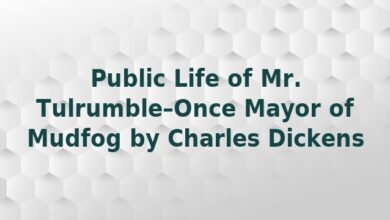
Keeping His Promise by Algernon Blackwood
It was eleven o’clock at night, and young Marriott was locked into his room, cramming as hard as he could cram. He was a “Fourth Year Man” at Edinburgh University and he had been ploughed for this particular examination so often that his parents had positively declared they could no longer supply the funds to keep him there.
His rooms were cheap and dingy, but it was the lecture fees that took the money. So Marriott pulled himself together at last and definitely made up his mind that he would pass or die in the attempt, and for some weeks now he had been reading as hard as mortal man can read. He was trying to make up for lost time and money in a way that showed conclusively he did not understand the value of either. For no ordinary man–and Marriott was in every sense an ordinary man–can afford to drive the mind as he had lately been driving his, without sooner or later paying the cost.
Among the students he had few friends or acquaintances, and these few had promised not to disturb him at night, knowing he was at last reading in earnest. It was, therefore, with feelings a good deal stronger than mere surprise that he heard his door-bell ring on this particular night and realised that he was to have a visitor. Some men would simply have muffled the bell and gone on quietly with their work. But Marriott was not this sort. He was nervous. It would have bothered and pecked at his mind all night long not to know who the visitor was and what he wanted. The only thing to do, therefore, was to let him in–and out again–as quickly as possible.
The landlady went to bed at ten o’clock punctually, after which hour nothing would induce her to pretend she heard the bell, so Marriott jumped up from his books with an exclamation that augured ill for the reception of his caller, and prepared to let him in with his own hand.
The streets of Edinburgh town were very still at this late hour–it was late for Edinburgh–and in the quiet neighbourhood of F—- Street, where Marriott lived on the third floor, scarcely a sound broke the silence. As he crossed the floor, the bell rang a second time, with unnecessary clamour, and he unlocked the door and passed into the little hallway with considerable wrath and annoyance in his heart at the insolence of the double interruption.
“The fellows all know I’m reading for this exam. Why in the world do they come to bother me at such an unearthly hour?”
The inhabitants of the building, with himself, were medical students, general students, poor Writers to the Signet, and some others whose vocations were perhaps not so obvious. The stone staircase, dimly lighted at each floor by a gas-jet that would not turn above a certain height, wound down to the level of the street with no pretence at carpet or railing. At some levels it was cleaner than at others. It depended on the landlady of the particular level.
The acoustic properties of a spiral staircase seem to be peculiar. Marriott, standing by the open door, book in hand, thought every moment the owner of the footsteps would come into view. The sound of the boots was so close and so loud that they seemed to travel disproportionately in advance of their cause. Wondering who it could be, he stood ready with all manner of sharp greetings for the man who dared thus to disturb his work. But the man did not appear. The steps sounded almost under his nose, yet no one was visible.
A sudden queer sensation of fear passed over him–a faintness and a shiver down the back. It went, however, almost as soon as it came, and he was just debating whether he would call aloud to his invisible visitor, or slam the door and return to his books, when the cause of the disturbance turned the corner very slowly and came into view.
It was a stranger. He saw a youngish man short of figure and very broad. His face was the colour of a piece of chalk and the eyes, which were very bright, had heavy lines underneath them. Though the cheeks and chin were unshaven and the general appearance unkempt, the man was evidently a gentleman, for he was well dressed and bore himself with a certain air. But, strangest of all, he wore no hat, and carried none in his hand; and although rain had been falling steadily all the evening, he appeared to have neither overcoat nor umbrella.
A hundred questions sprang up in Marriott’s mind and rushed to his lips, chief among which was something like “Who in the world are you?” and “What in the name of heaven do you come to me for?” But none of these questions found time to express themselves in words, for almost at once the caller turned his head a little so that the gas light in the hall fell upon his features from a new angle. Then in a flash Marriott recognised him.
“Field! Man alive! Is it you?” he gasped.
The Fourth Year Man was not lacking in intuition, and he perceived at once that here was a case for delicate treatment. He divined, without any actual process of thought, that the catastrophe often predicted had come at last, and that this man’s father had turned him out of the house. They had been at a private school together years before, and though they had hardly met once since, the news had not failed to reach him from time to time with considerable detail, for the family lived near his own and between certain of the sisters there was great intimacy. Young Field had gone wild later, he remembered hearing about it all–drink, a woman, opium, or something of the sort–he could not exactly call to mind.
“Come in,” he said at once, his anger vanishing. “There’s been something wrong, I can see. Come in, and tell me all about it and perhaps I can help–” He hardly knew what to say, and stammered a lot more besides. The dark side of life, and the horror of it, belonged to a world that lay remote from his own select little atmosphere of books and dreamings. But he had a man’s heart for all that.
He led the way across the hall, shutting the front door carefully behind him, and noticed as he did so that the other, though certainly sober, was unsteady on his legs, and evidently much exhausted. Marriott might not be able to pass his examinations, but he at least knew the symptoms of starvation–acute starvation, unless he was much mistaken–when they stared him in the face.
“Come along,” he said cheerfully, and with genuine sympathy in his voice. “I’m glad to see you. I was going to have a bite of something to eat, and you’re just in time to join me.”
The other made no audible reply, and shuffled so feebly with his feet that Marriott took his arm by way of support. He noticed for the first time that the clothes hung on him with pitiful looseness. The broad frame was literally hardly more than a frame. He was as thin as a skeleton. But, as he touched him, the sensation of faintness and dread returned. It only lasted a moment, and then passed off, and he ascribed it not unnaturally to the distress and shock of seeing a former friend in such a pitiful plight.
“Better let me guide you. It’s shamefully dark–this hall. I’m always complaining,” he said lightly, recognising by the weight upon his arm that the guidance was sorely needed, “but the old cat never does anything except promise.” He led him to the sofa, wondering all the time where he had come from and how he had found out the address. It must be at least seven years since those days at the private school when they used to be such close friends.
“Now, if you’ll forgive me for a minute,” he said, “I’ll get supper ready–such as it is. And don’t bother to talk. Just take it easy on the sofa. I see you’re dead tired. You can tell me about it afterwards, and we’ll make plans.”
The other sat down on the edge of the sofa and stared in silence, while Marriott got out the brown loaf, scones, and huge pot of marmalade that Edinburgh students always keep in their cupboards. His eyes shone with a brightness that suggested drugs, Marriott thought, stealing a glance at him from behind the cupboard door. He did not like yet to take a full square look. The fellow was in a bad way, and it would have been so like an examination to stare and wait for explanations. Besides, he was evidently almost too exhausted to speak. So, for reasons of delicacy–and for another reason as well which he could not exactly formulate to himself–he let his visitor rest apparently unnoticed, while he busied himself with the supper. He lit the spirit lamp to make cocoa, and when the water was boiling he drew up the table with the good things to the sofa, so that Field need not have even the trouble of moving to a chair.
“Now, let’s tuck in,” he said, “and afterwards we’ll have a pipe and a chat. I’m reading for an exam, you know, and I always have something about this time. It’s jolly to have a companion.”
He looked up and caught his guest’s eyes directed straight upon his own. An involuntary shudder ran through him from head to foot. The face opposite him was deadly white and wore a dreadful expression of pain and mental suffering.
“By Gad!” he said, jumping up, “I quite forgot. I’ve got some whisky somewhere. What an ass I am. I never touch it myself when I’m working like this.”
He went to the cupboard and poured out a stiff glass which the other swallowed at a single gulp and without any water. Marriott watched him while he drank it, and at the same time noticed something else as well–Field’s coat was all over dust, and on one shoulder was a bit of cobweb. It was perfectly dry; Field arrived on a soaking wet night without hat, umbrella, or overcoat, and yet perfectly dry, even dusty. Therefore he had been under cover. What did it all mean? Had he been hiding in the building? . . .
It was very strange. Yet he volunteered nothing; and Marriott had pretty well made up his mind by this time that he would not ask any questions until he had eaten and slept. Food and sleep were obviously what the poor devil needed most and first–he was pleased with his powers of ready diagnosis–and it would not be fair to press him till he had recovered a bit.
They ate their supper together while the host carried on a running one-sided conversation, chiefly about himself and his exams and his “old cat” of a landlady, so that the guest need not utter a single word unless he really wished to–which he evidently did not! But, while he toyed with his food, feeling no desire to eat, the other ate voraciously. To see a hungry man devour cold scones, stale oatcake, and brown bread laden with marmalade was a revelation to this inexperienced student who had never known what it was to be without at least three meals a day. He watched in spite of himself, wondering why the fellow did not choke in the process.
But Field seemed to be as sleepy as he was hungry. More than once his head dropped and he ceased to masticate the food in his mouth. Marriott had positively to shake him before he would go on with his meal. A stronger emotion will overcome a weaker, but this struggle between the sting of real hunger and the magical opiate of overpowering sleep was a curious sight to the student, who watched it with mingled astonishment and alarm. He had heard of the pleasure it was to feed hungry men, and watch them eat, but he had never actually witnessed it, and he had no idea it was like this. Field ate like an animal–gobbled, stuffed, gorged. Marriott forgot his reading, and began to feel something very much like a lump in his throat.
“Afraid there’s been awfully little to offer you, old man,” he managed to blurt out when at length the last scone had disappeared, and the rapid, one-sided meal was at an end. Field still made no reply, for he was almost asleep in his seat. He merely looked up wearily and gratefully.
“Now you must have some sleep, you know,” he continued, “or you’ll go to pieces. I shall be up all night reading for this blessed exam. You’re more than welcome to my bed. To-morrow we’ll have a late breakfast and–and see what can be done–and make plans–I’m awfully good at making plans, you know,” he added with an attempt at lightness.
Field maintained his “dead sleepy” silence, but appeared to acquiesce, and the other led the way into the bedroom, apologising as he did so to this half-starved son of a baronet–whose own home was almost a palace–for the size of the room. The weary guest, however, made no pretence of thanks or politeness. He merely steadied himself on his friend’s arm as he staggered across the room, and then, with all his clothes on, dropped his exhausted body on the bed. In less than a minute he was to all appearances sound asleep.
For several minutes Marriott stood in the open door and watched him; praying devoutly that he might never find himself in a like predicament, and then fell to wondering what he would do with his unbidden guest on the morrow. But he did not stop long to think, for the call of his books was imperative, and happen what might, he must see to it that he passed that examination.
Having again locked the door into the hall, he sat down to his books and resumed his notes on materia medica where he had left off when the bell rang. But it was difficult for some time to concentrate his mind on the subject. His thoughts kept wandering to the picture of that white-faced, strange-eyed fellow, starved and dirty, lying in his clothes and boots on the bed. He recalled their schooldays together before they had drifted apart, and how they had vowed eternal friendship–and all the rest of it. And now! What horrible straits to be in. How could any man let the love of dissipation take such hold upon him?
But one of their vows together Marriott, it seemed, had completely forgotten. Just now, at any rate, it lay too far in the background of his memory to be recalled.
Through the half-open door–the bedroom led out of the sitting-room and had no other door–came the sound of deep, long-drawn breathing, the regular, steady breathing of a tired man, so tired that, even to listen to it made Marriott almost want to go to sleep himself.
“He needed it,” reflected the student, “and perhaps it came only just in time!”
Perhaps so; for outside the bitter wind from across the Forth howled cruelly and drove the rain in cold streams against the window-panes, and down the deserted streets. Long before Marriott settled down again properly to his reading, he heard distantly, as it were, through the sentences of the book, the heavy, deep breathing of the sleeper in the next room.
A couple of hours later, when he yawned and changed his books, he still heard the breathing, and went cautiously up to the door to look round.
At first the darkness of the room must have deceived him, or else his eyes were confused and dazzled by the recent glare of the reading lamp. For a minute or two he could make out nothing at all but dark lumps of furniture, the mass of the chest of drawers by the wall, and the white patch where his bath stood in the centre of the floor.
Then the bed came slowly into view. And on it he saw the outline of the sleeping body gradually take shape before his eyes, growing up strangely into the darkness, till it stood out in marked relief–the long black form against the white counterpane.
He could hardly help smiling. Field had not moved an inch. He watched him a moment or two and then returned to his books. The night was full of the singing voices of the wind and rain. There was no sound of traffic; no hansoms clattered over the cobbles, and it was still too early for the milk carts. He worked on steadily and conscientiously, only stopping now and again to change a book, or to sip some of the poisonous stuff that kept him awake and made his brain so active, and on these occasions Field’s breathing was always distinctly audible in the room. Outside, the storm continued to howl, but inside the house all was stillness. The shade of the reading lamp threw all the light upon the littered table, leaving the other end of the room in comparative darkness. The bedroom door was exactly opposite him where he sat. There was nothing to disturb the worker, nothing but an occasional rush of wind against the windows, and a slight pain in his arm.
This pain, however, which he was unable to account for, grew once or twice very acute. It bothered him; and he tried to remember how, and when, he could have bruised himself so severely, but without success.
At length the page before him turned from yellow to grey, and there were sounds of wheels in the street below. It was four o’clock. Marriott leaned back and yawned prodigiously. Then he drew back the curtains. The storm had subsided and the Castle Rock was shrouded in mist. With another yawn he turned away from the dreary outlook and prepared to sleep the remaining four hours till breakfast on the sofa. Field was still breathing heavily in the next room, and he first tip-toed across the floor to take another look at him.
Peering cautiously round the half-opened door his first glance fell upon the bed now plainly discernible in the grey light of morning. He stared hard. Then he rubbed his eyes. Then he rubbed his eyes again and thrust his head farther round the edge of the door. With fixed eyes he stared harder still, and harder.
But it made no difference at all. He was staring into an empty room.
The sensation of fear he had felt when Field first appeared upon the scene returned suddenly, but with much greater force. He became conscious, too, that his left arm was throbbing violently and causing him great pain. He stood wondering, and staring, and trying to collect his thoughts. He was trembling from head to foot.
By a great effort of the will he left the support of the door and walked forward boldly into the room.
There, upon the bed, was the impress of a body, where Field had lain and slept. There was the mark of the head on the pillow, and the slight indentation at the foot of the bed where the boots had rested on the counterpane. And there, plainer than ever–for he was closer to it–was the breathing!
Marriott tried to pull himself together. With a great effort he found his voice and called his friend aloud by name!
“Field! Is that you? Where are you?”
There was no reply; but the breathing continued without interruption, coming directly from the bed. His voice had such an unfamiliar sound that Marriott did not care to repeat his questions, but he went down on his knees and examined the bed above and below, pulling the mattress off finally, and taking the coverings away separately one by one. But though the sounds continued there was no visible sign of Field, nor was there any space in which a human being, however small, could have concealed itself. He pulled the bed out from the wall, but the sound stayed where it was. It did not move with the bed.
Marriott, finding self-control a little difficult in his weary condition, at once set about a thorough search of the room. He went through the cupboard, the chest of drawers, the little alcove where the clothes hung–everything. But there was no sign of anyone. The small window near the ceiling was closed; and, anyhow, was not large enough to let a cat pass. The sitting-room door was locked on the inside; he could not have got out that way. Curious thoughts began to trouble Marriott’s mind, bringing in their train unwelcome sensations. He grew more and more excited; he searched the bed again till it resembled the scene of a pillow fight; he searched both rooms, knowing all the time it was useless,–and then he searched again. A cold perspiration broke out all over his body; and the sound of heavy breathing, all this time, never ceased to come from the corner where Field had lain down to sleep.
Then he tried something else. He pushed the bed back exactly into its original position–and himself lay down upon it just where his guest had lain. But the same instant he sprang up again in a single bound. The breathing was close beside him, almost on his cheek, and between him and the wall! Not even a child could have squeezed into the space.
He went back into his sitting-room, opened the windows, welcoming all the light and air possible, and tried to think the whole matter over quietly and clearly. Men who read too hard, and slept too little, he knew were sometimes troubled with very vivid hallucinations. Again he calmly reviewed every incident of the night; his accurate sensations; the vivid details; the emotions stirred in him; the dreadful feast–no single hallucination could ever combine all these and cover so long a period of time. But with less satisfaction he thought of the recurring faintness, and curious sense of horror that had once or twice come over him, and then of the violent pains in his arm. These were quite unaccountable.
Moreover, now that he began to analyse and examine, there was one other thing that fell upon him like a sudden revelation: During the whole time Field had not actually uttered a single word! Yet, as though in mockery upon his reflections, there came ever from that inner room the sound of the breathing, long-drawn, deep, and regular. The thing was incredible. It was absurd.
Haunted by visions of brain fever and insanity, Marriott put on his cap and macintosh and left the house. The morning air on Arthur’s Seat would blow the cobwebs from his brain; the scent of the heather, and above all, the sight of the sea. He roamed over the wet slopes above Holyrood for a couple of hours, and did not return until the exercise had shaken some of the horror out of his bones, and given him a ravening appetite into the bargain.
As he entered he saw that there was another man in the room, standing against the window with his back to the light. He recognised his fellow-student Greene, who was reading for the same examination.
“Read hard all night, Marriott,” he said, “and thought I’d drop in here to compare notes and have some breakfast. You’re out early?” he added, by way of a question. Marriott said he had a headache and a walk had helped it, and Greene nodded and said “Ah!” But when the girl had set the steaming porridge on the table and gone out again, he went on with rather a forced tone, “Didn’t know you had any friends who drank, Marriott?”
This was obviously tentative, and Marriott replied drily that he did not know it either.
“Sounds just as if some chap were ‘sleeping it off’ in there, doesn’t it, though?” persisted the other, with a nod in the direction of the bedroom, and looking curiously at his friend. The two men stared steadily at each other for several seconds, and then Marriott said earnestly–
“Then you hear it too, thank God!”
“Of course I hear it. The door’s open. Sorry if I wasn’t meant to.”
“Oh, I don’t mean that,” said Marriott, lowering his voice. “But I’m awfully relieved. Let me explain. Of course, if you hear it too, then it’s all right; but really it frightened me more than I can tell you. I thought I was going to have brain fever, or something, and you know what a lot depends on this exam. It always begins with sounds, or visions, or some sort of beastly hallucination, and I–“
“Rot!” ejaculated the other impatiently. “What are you talking about?”
“Now, listen to me, Greene,” said Marriott, as calmly as he could, for the breathing was still plainly audible, “and I’ll tell you what I mean, only don’t interrupt.” And thereupon he related exactly what had happened during the night, telling everything, even down to the pain in his arm. When it was over he got up from the table and crossed the room.
“You hear the breathing now plainly, don’t you?” he said. Greene said he did. “Well, come with me, and we’ll search the room together.” The other, however, did not move from his chair.
“I’ve been in already,” he said sheepishly; “I heard the sounds and thought it was you. The door was ajar–so I went in.”
Marriott made no comment, but pushed the door open as wide as it would go. As it opened, the sound of breathing grew more and more distinct.
“Someone must be in there,” said Greene under his breath.
“Someone is in there, but where?” said Marriott. Again he urged his friend to go in with him. But Greene refused point-blank; said he had been in once and had searched the room and there was nothing there. He would not go in again for a good deal.
They shut the door and retired into the other room to talk it all over with many pipes. Greene questioned his friend very closely, but without illuminating result, since questions cannot alter facts.
“The only thing that ought to have a proper, a logical, explanation is the pain in my arm,” said Marriott, rubbing that member with an attempt at a smile. “It hurts so infernally and aches all the way up. I can’t remember bruising it, though.”
“Let me examine it for you,” said Greene. “I’m awfully good at bones in spite of the examiners’ opinion to the contrary.” It was a relief to play the fool a bit, and Marriott took his coat off and rolled up his sleeve.
“By George, though, I’m bleeding!” he exclaimed. “Look here! What on earth’s this?”
On the forearm, quite close to the wrist, was a thin red line. There was a tiny drop of apparently fresh blood on it. Greene came over and looked closely at it for some minutes. Then he sat back in his chair, looking curiously at his friend’s face.
“You’ve scratched yourself without knowing it,” he said presently.
“There’s no sign of a bruise. It must be something else that made the arm ache.”
Marriott sat very still, staring silently at his arm as though the solution of the whole mystery lay there actually written upon the skin.
“What’s the matter? I see nothing very strange about a scratch,” said Greene, in an unconvincing sort of voice. “It was your cuff links probably. Last night in your excitement–“
But Marriott, white to the very lips, was trying to speak. The sweat stood in great beads on his forehead. At last he leaned forward close to his friend’s face.
“Look,” he said, in a low voice that shook a little. “Do you see that red mark? I mean underneath what you call the scratch?”
Greene admitted he saw something or other, and Marriott wiped the place clean with his handkerchief and told him to look again more closely.
“Yes, I see,” returned the other, lifting his head after a moment’s careful inspection. “It looks like an old scar.”
“It is an old scar,” whispered Marriott, his lips trembling. “Now it all comes back to me.”
“All what?” Greene fidgeted on his chair. He tried to laugh, but without success. His friend seemed bordering on collapse.
“Hush! Be quiet, and–I’ll tell you,” he said. “Field made that scar.”
For a whole minute the two men looked each other full in the face without speaking.
“Field made that scar!” repeated Marriott at length in a louder voice.
“Field! You mean–last night?”
“No, not last night. Years ago–at school, with his knife. And I made a scar in his arm with mine.” Marriott was talking rapidly now.
“We exchanged drops of blood in each other’s cuts. He put a drop into my arm and I put one into his–“
“In the name of heaven, what for?”
“It was a boys’ compact. We made a sacred pledge, a bargain. I remember it all perfectly now. We had been reading some dreadful book and we swore to appear to one another–I mean, whoever died first swore to show himself to the other. And we sealed the compact with each other’s blood. I remember it all so well–the hot summer afternoon in the playground, seven years ago–and one of the masters caught us and confiscated the knives–and I have never thought of it again to this day–“
“And you mean–” stammered Greene.
But Marriott made no answer. He got up and crossed the room and lay down wearily upon the sofa, hiding his face in his hands.
Greene himself was a bit non-plussed. He left his friend alone for a little while, thinking it all over again. Suddenly an idea seemed to strike him. He went over to where Marriott still lay motionless on the sofa and roused him. In any case it was better to face the matter, whether there was an explanation or not. Giving in was always the silly exit.
“I say, Marriott,” he began, as the other turned his white face up to him. “There’s no good being so upset about it. I mean–if it’s all an hallucination we know what to do. And if it isn’t–well, we know what to think, don’t we?”
“I suppose so. But it frightens me horribly for some reason,” returned his friend in a hushed voice. “And that poor devil–“
“But, after all, if the worst is true and–and that chap has kept his promise–well, he has, that’s all, isn’t it?”
Marriott nodded.
“There’s only one thing that occurs to me,” Greene went on, “and that is, are you quite sure that–that he really ate like that–I mean that he actually ate anything at all?” he finished, blurting out all his thought.
Marriott stared at him for a moment and then said he could easily make certain. He spoke quietly. After the main shock no lesser surprise could affect him.
“I put the things away myself,” he said, “after we had finished. They are on the third shelf in that cupboard. No one’s touched ‘em since.”
He pointed without getting up, and Greene took the hint and went over to look.
“Exactly,” he said, after a brief examination; “just as I thought. It was partly hallucination, at any rate. The things haven’t been touched. Come and see for yourself.”
Together they examined the shelf. There was the brown loaf, the plate of stale scones, the oatcake, all untouched. Even the glass of whisky Marriott had poured out stood there with the whisky still in it.
“You were feeding–no one,” said Greene “Field ate and drank nothing. He was not there at all!”
“But the breathing?” urged the other in a low voice, staring with a dazed expression on his face.
Greene did not answer. He walked over to the bedroom, while Marriott followed him with his eyes. He opened the door, and listened. There was no need for words. The sound of deep, regular breathing came floating through the air. There was no hallucination about that, at any rate. Marriott could hear it where he stood on the other side of the room.
Greene closed the door and came back. “There’s only one thing to do,” he declared with decision. “Write home and find out about him, and meanwhile come and finish your reading in my rooms. I’ve got an extra bed.”
“Agreed,” returned the Fourth Year Man; “there’s no hallucination about that exam; I must pass that whatever happens.”
And this was what they did.
It was about a week later when Marriott got the answer from his sister. Part of it he read out to Greene–
“It is curious,” she wrote, “that in your letter you should have enquired after Field. It seems a terrible thing, but you know only a short while ago Sir John’s patience became exhausted, and he turned him out of the house, they say without a penny. Well, what do you think? He has killed himself. At least, it looks like suicide. Instead of leaving the house, he went down into the cellar and simply starved himself to death. . . . They’re trying to suppress it, of course, but I heard it all from my maid, who got it from their footman. . . . They found the body on the 14th and the doctor said he had died about twelve hours before. . . . He was dreadfully thin. . . .”
“Then he died on the 13th,” said Greene.
Marriott nodded.
“That’s the very night he came to see you.”
Marriott nodded again.





